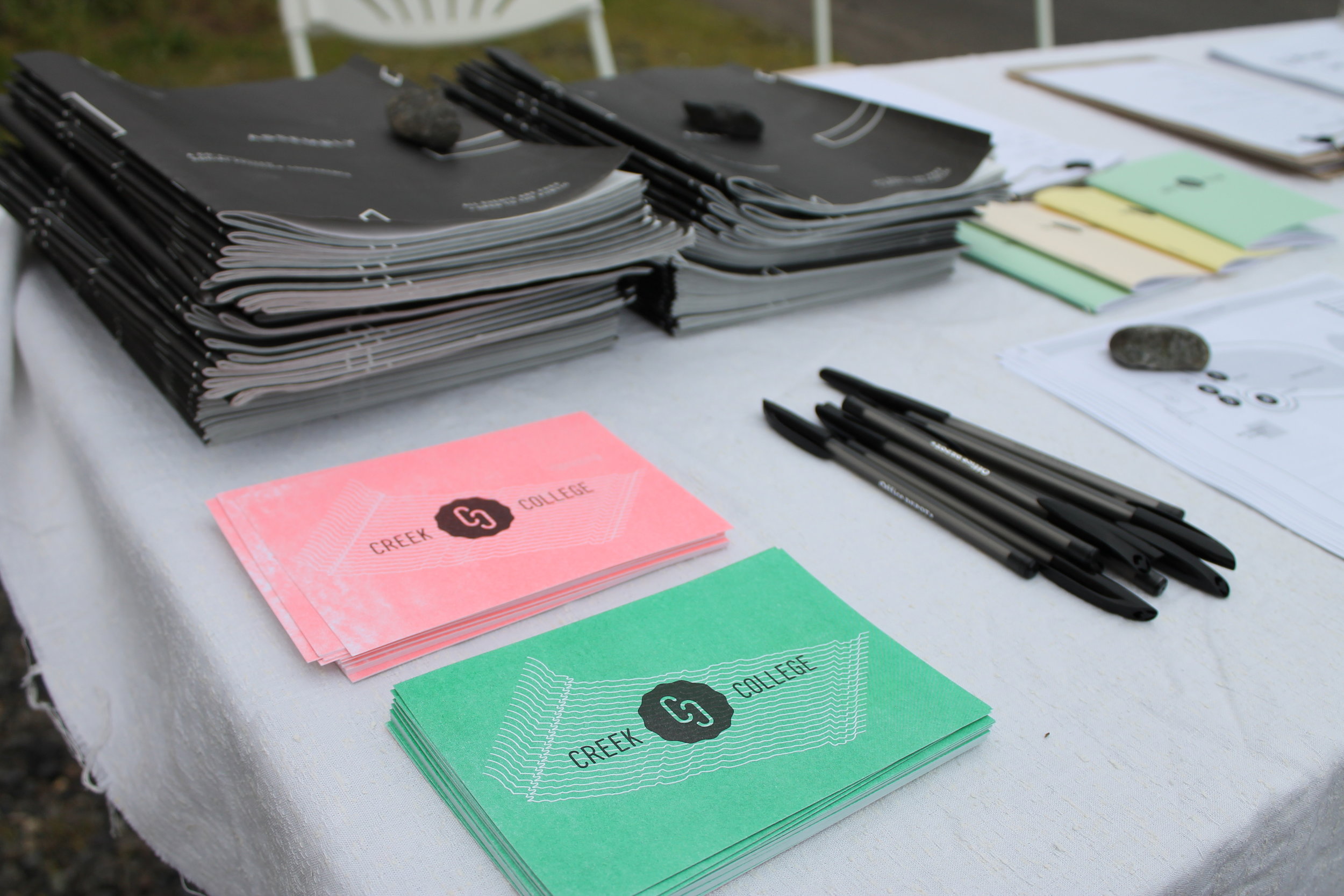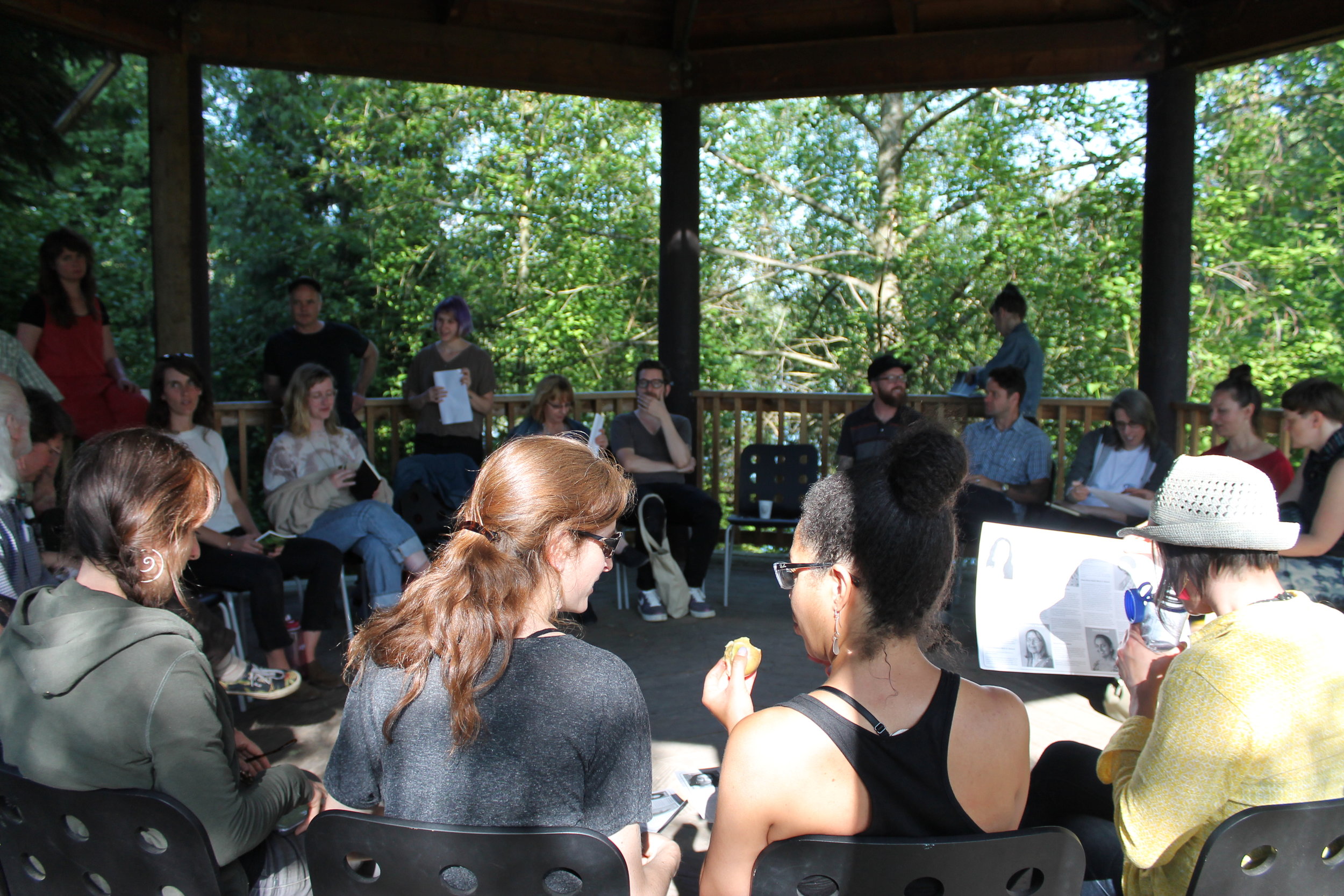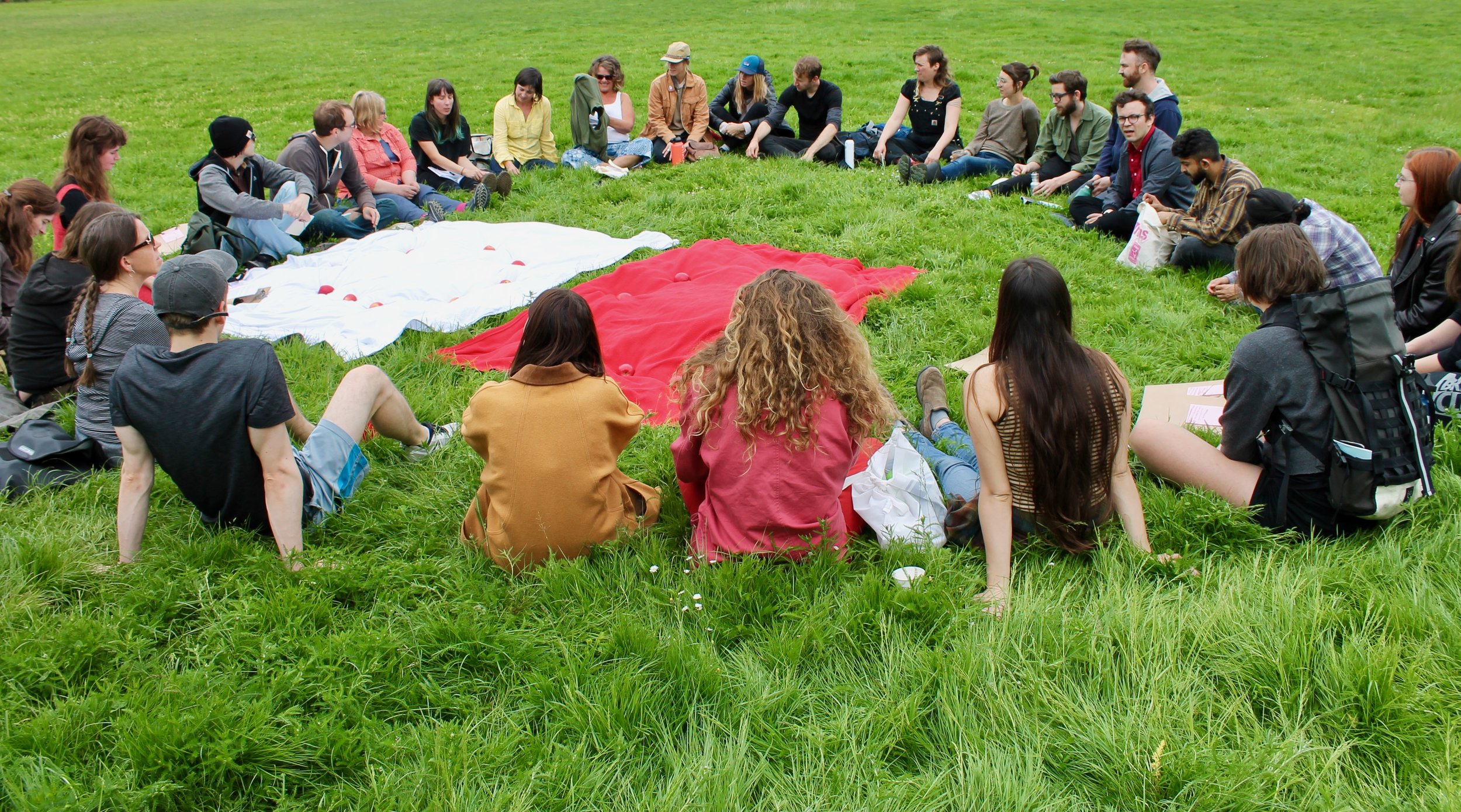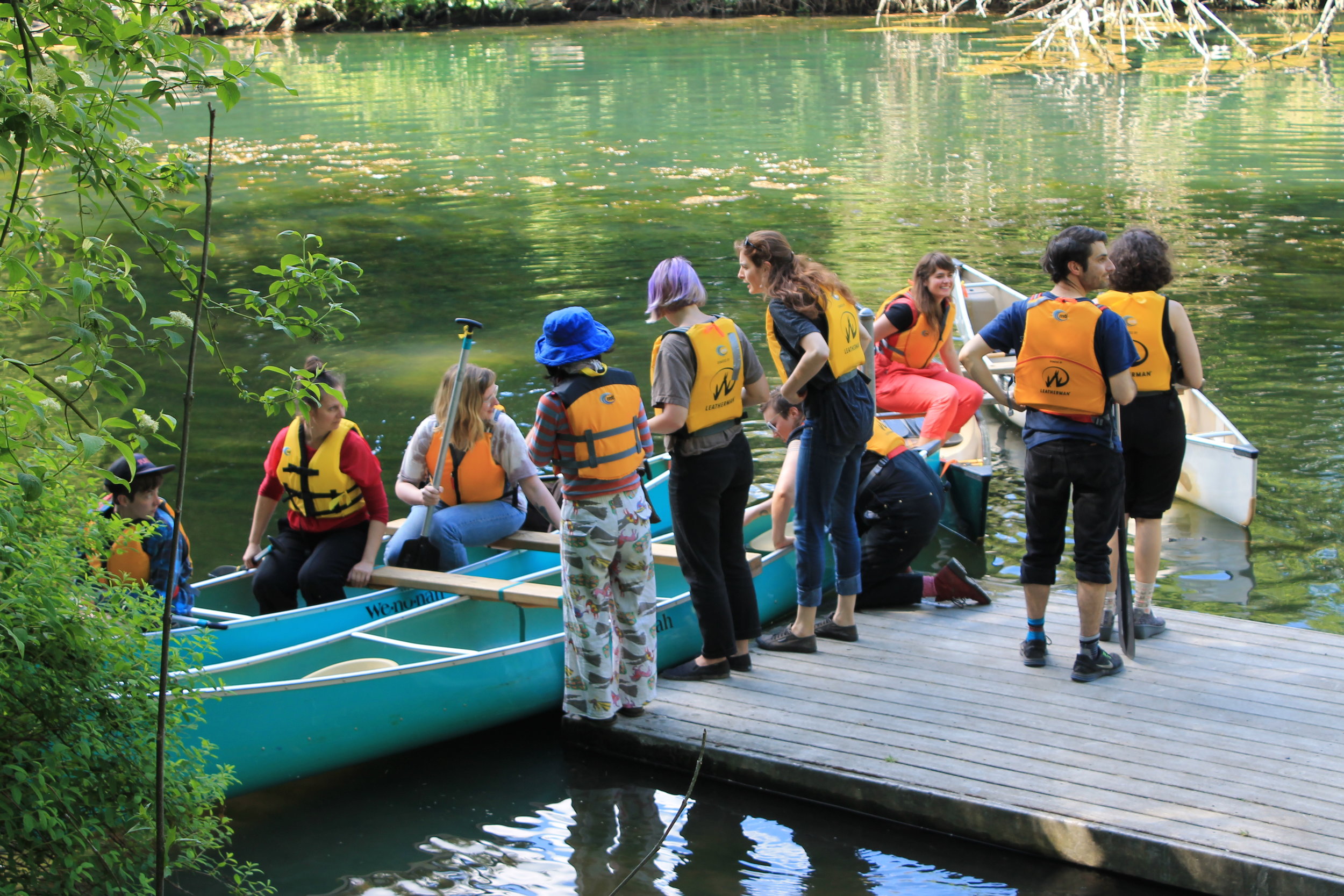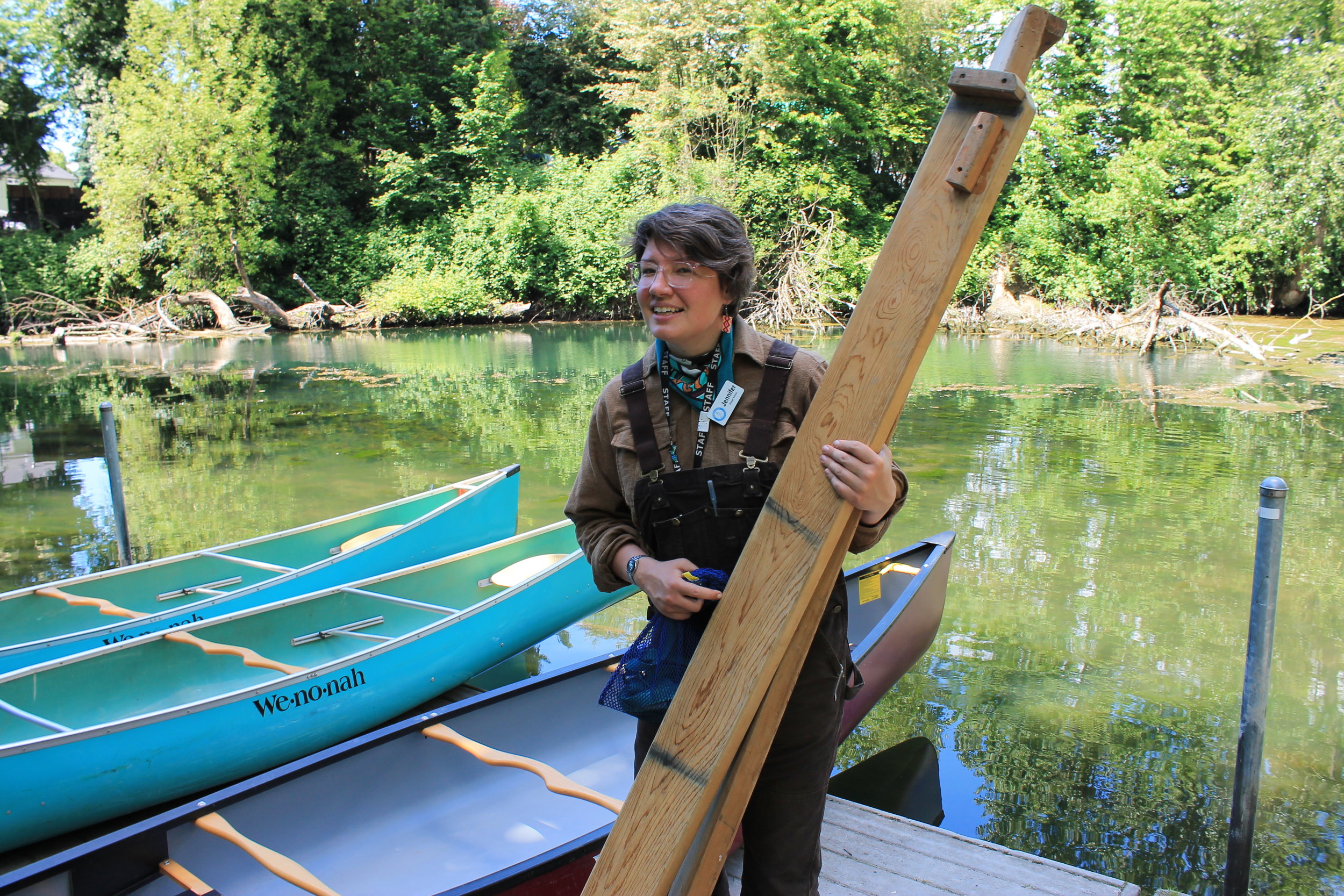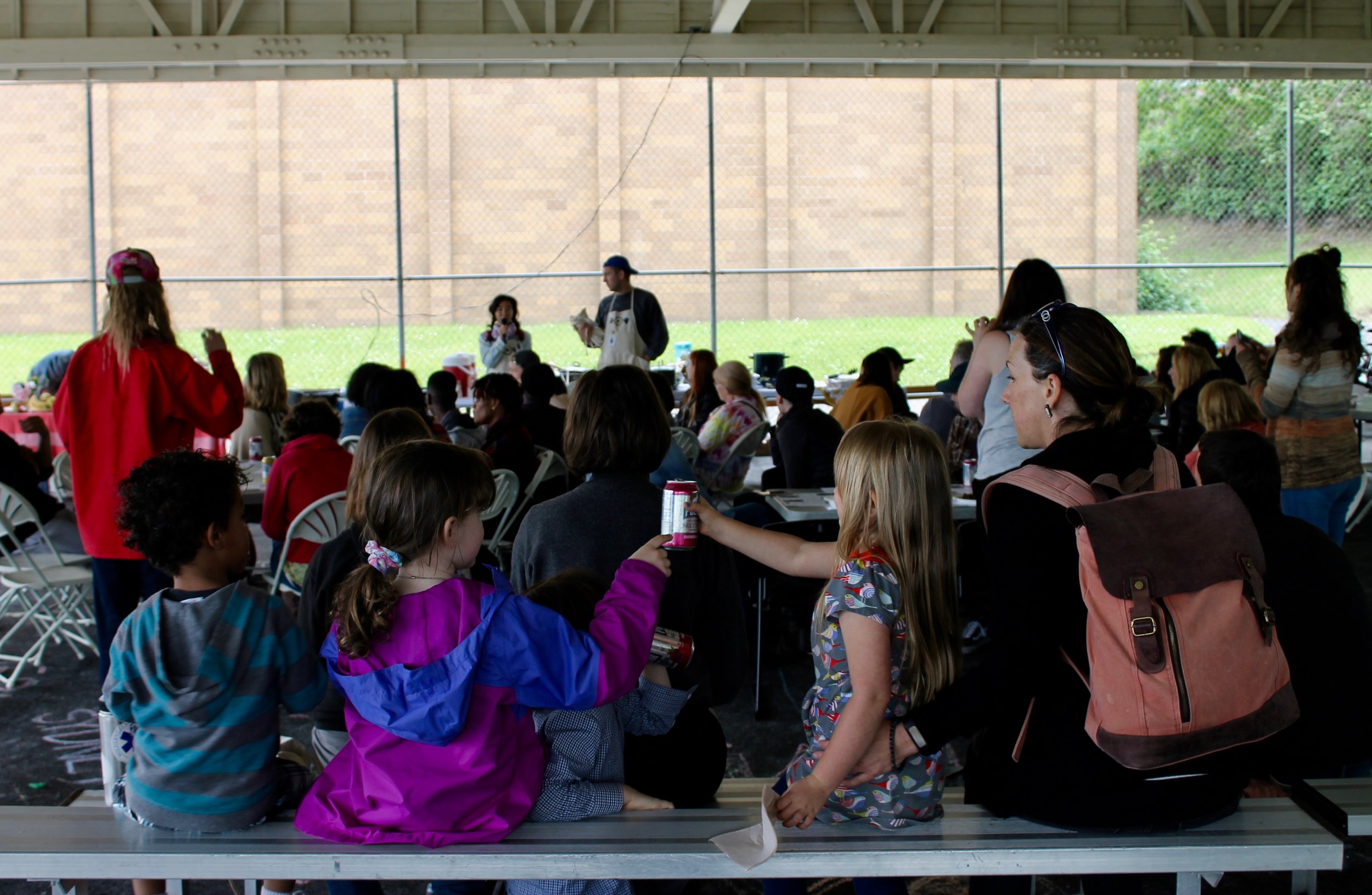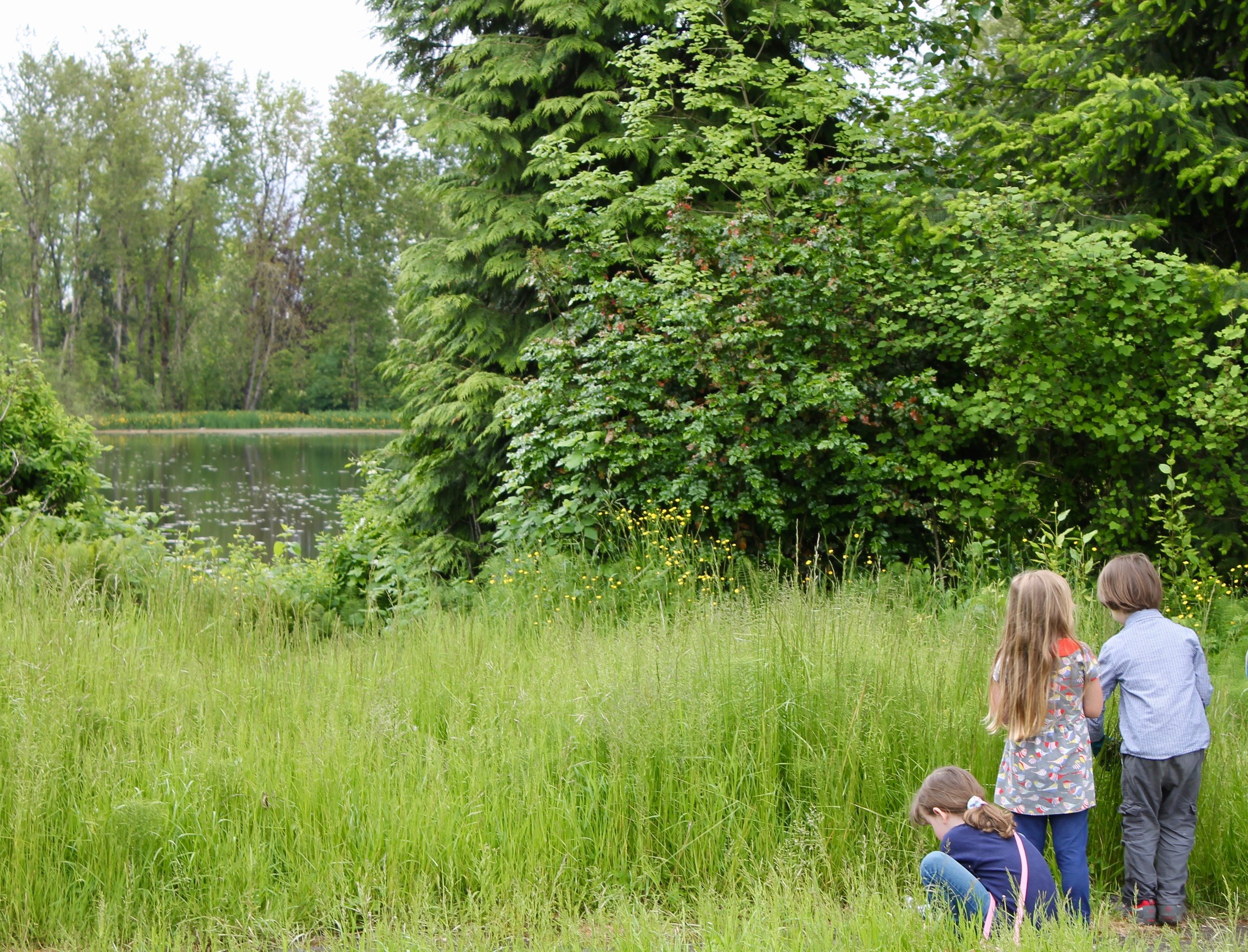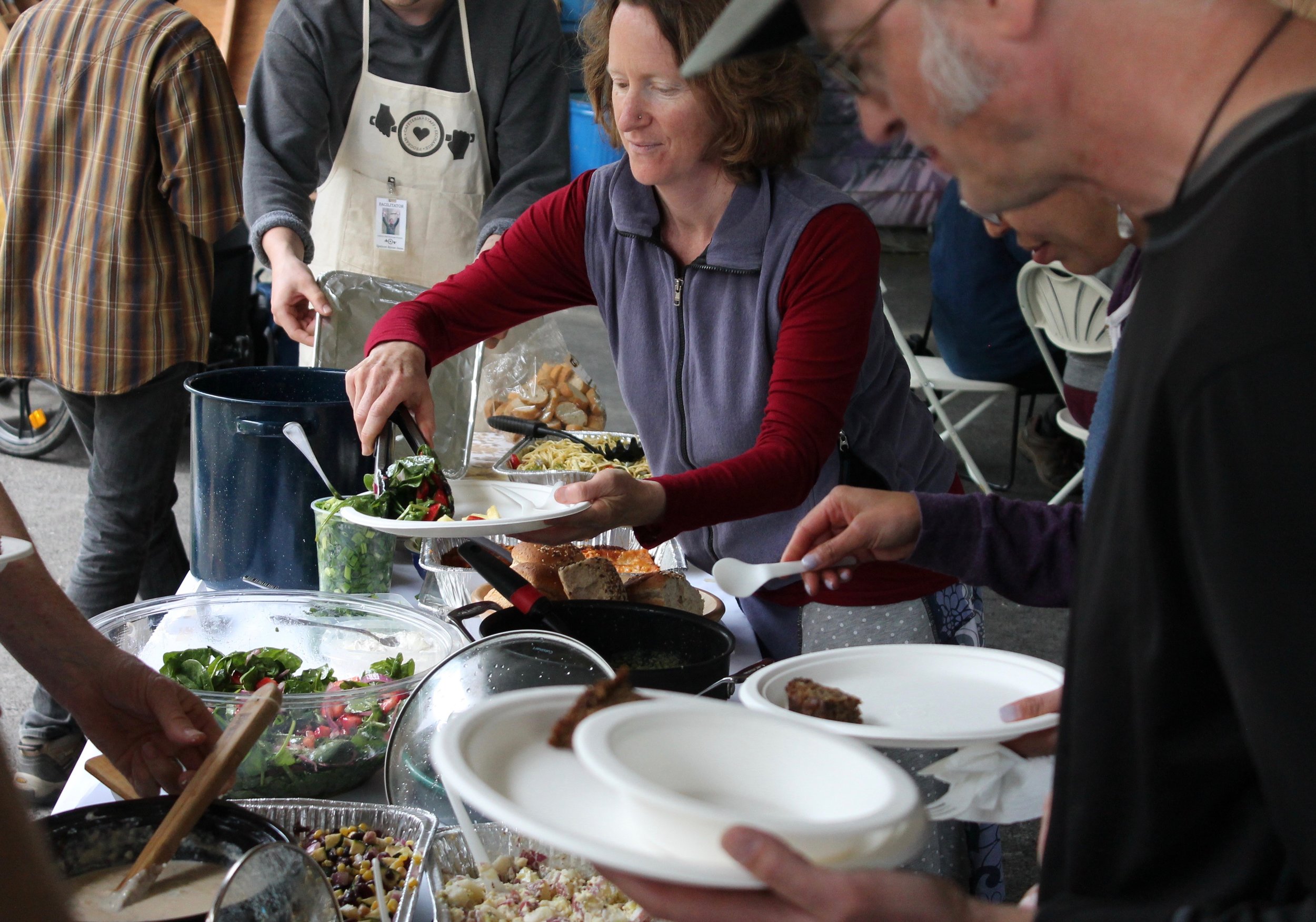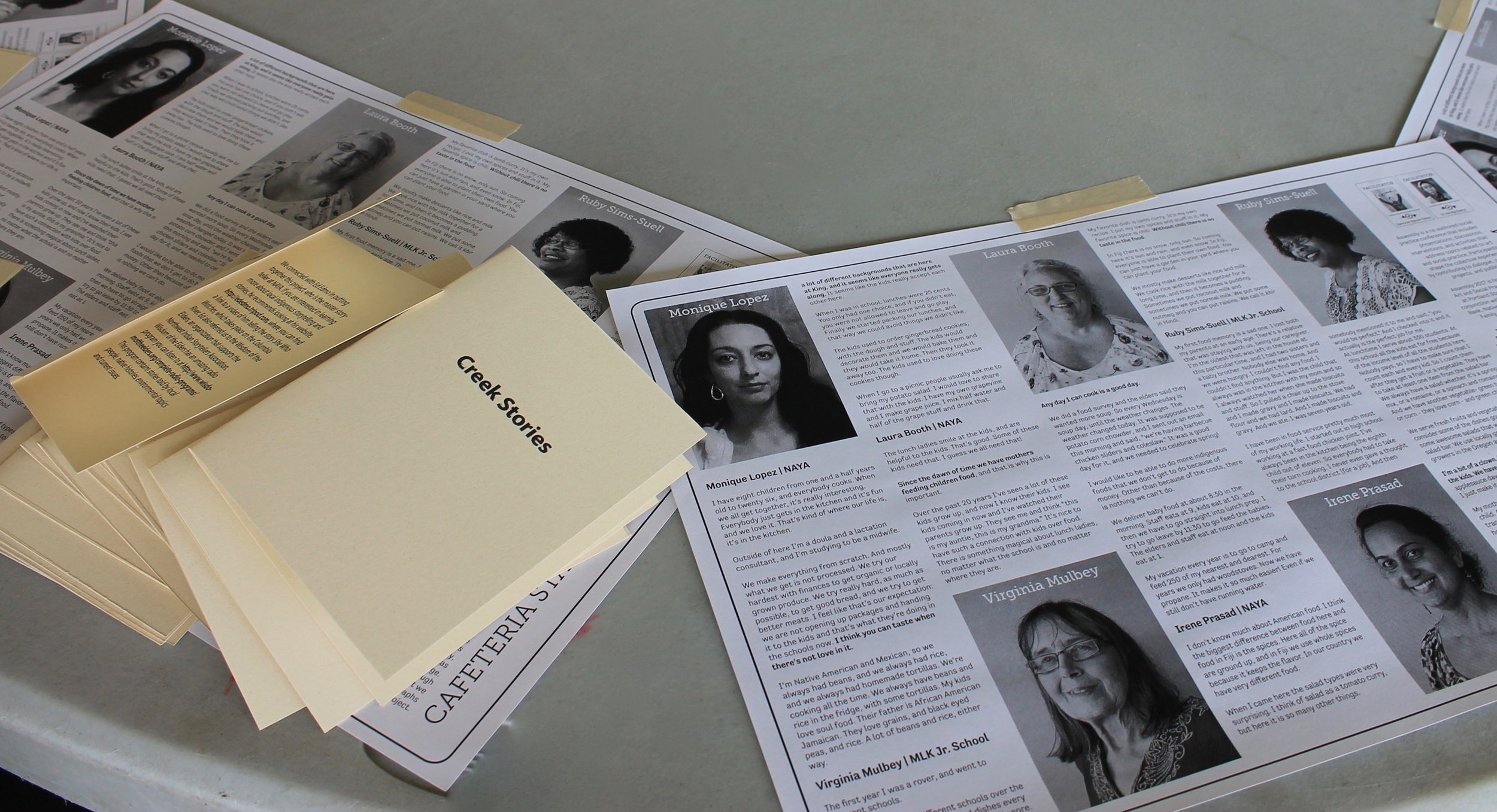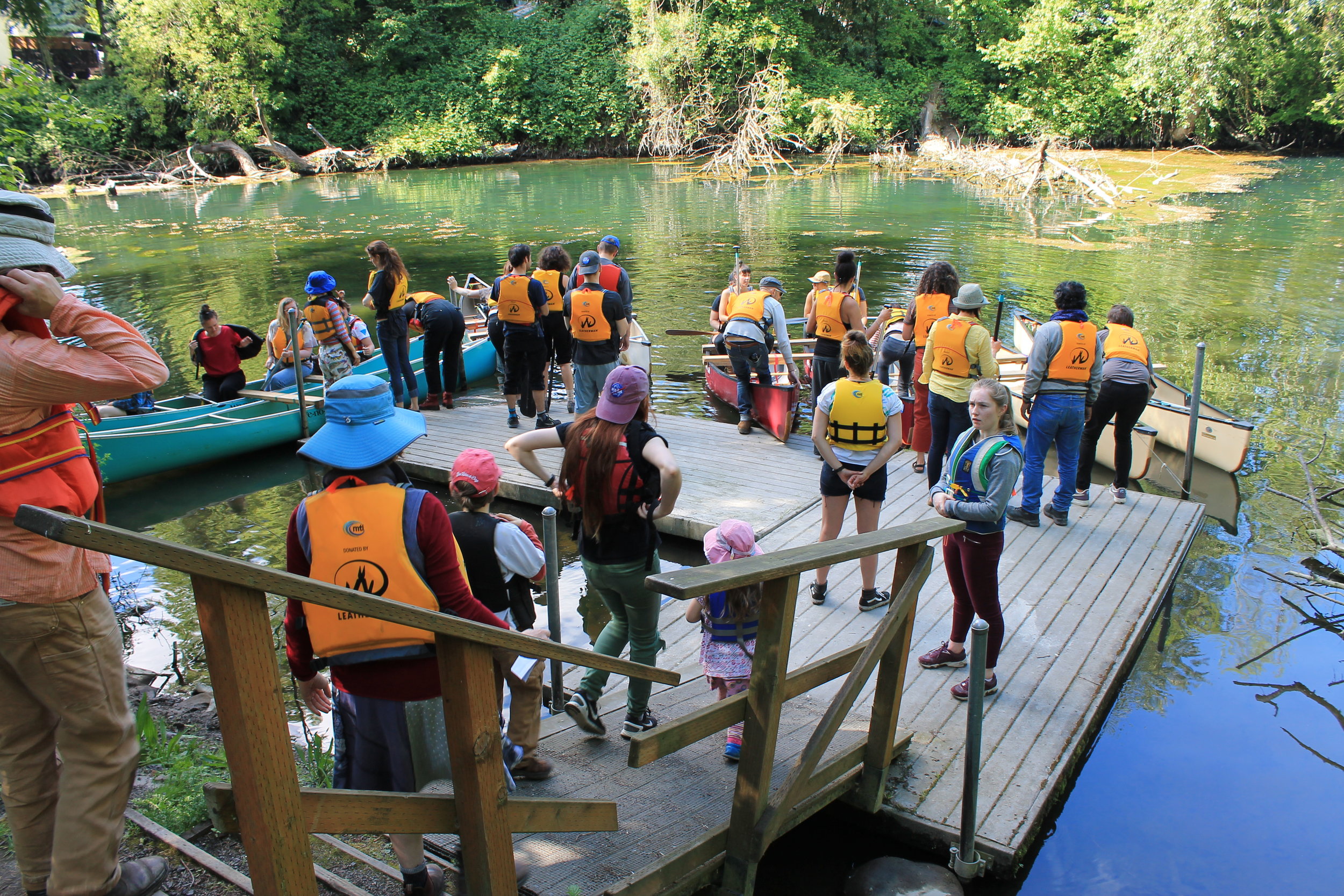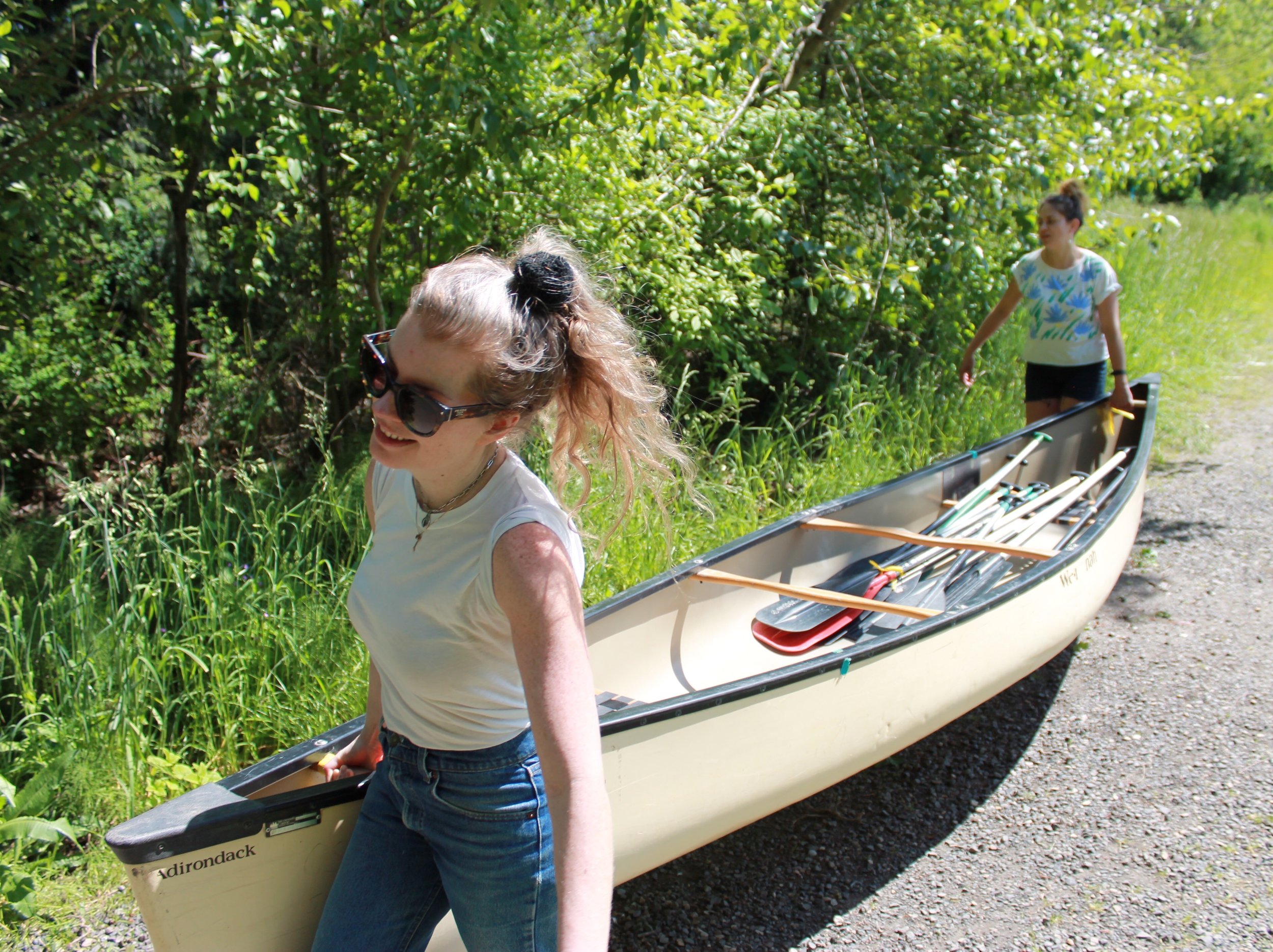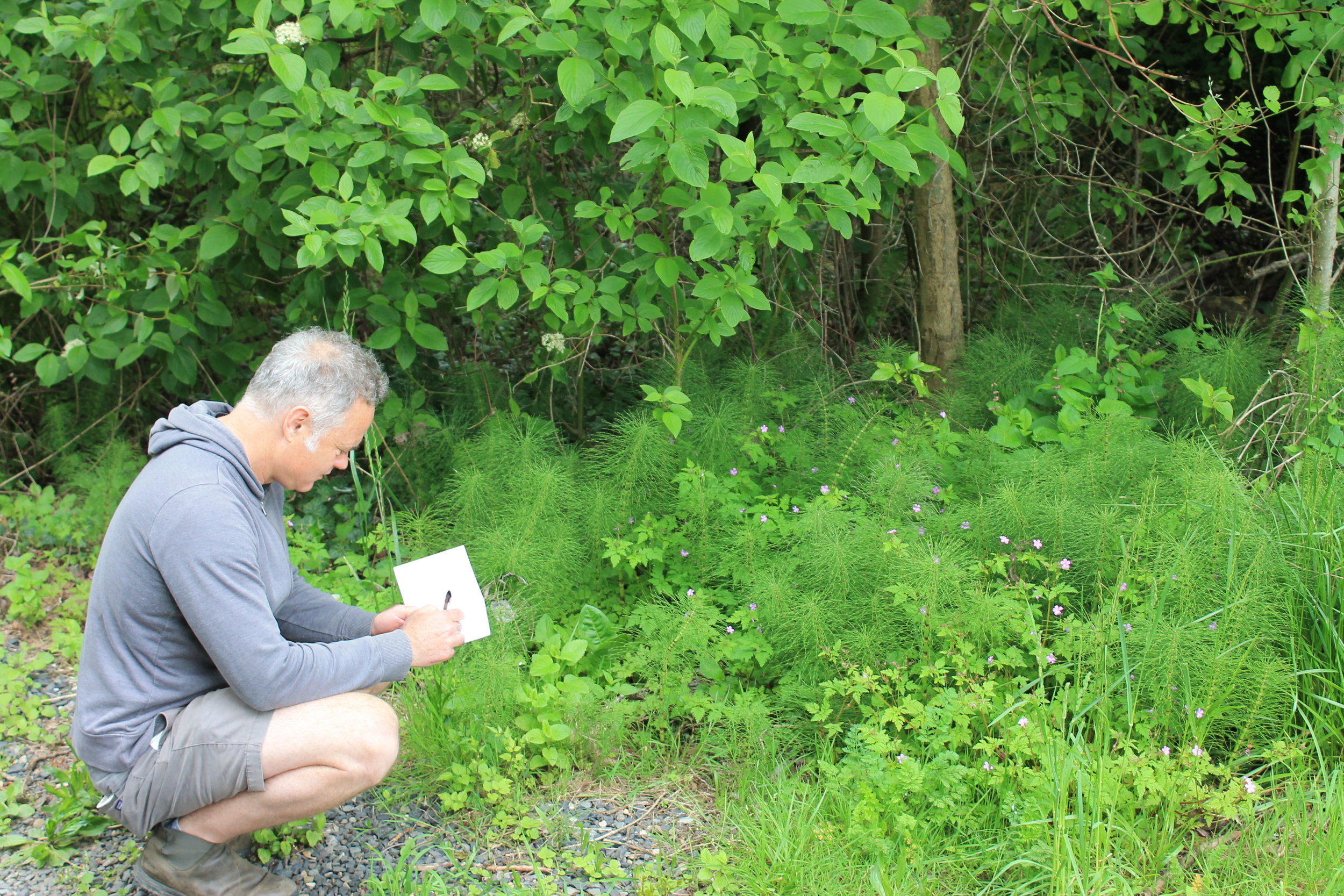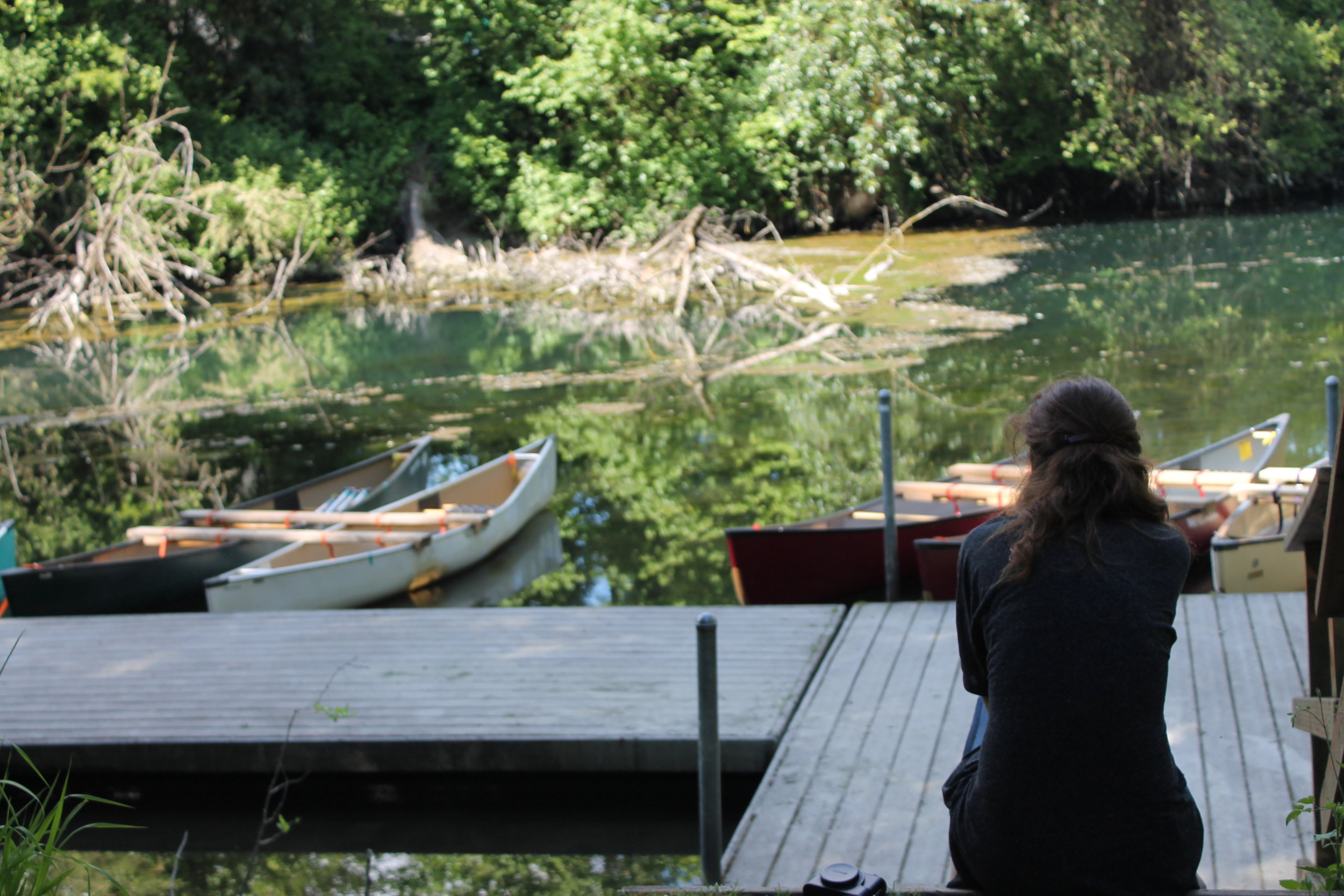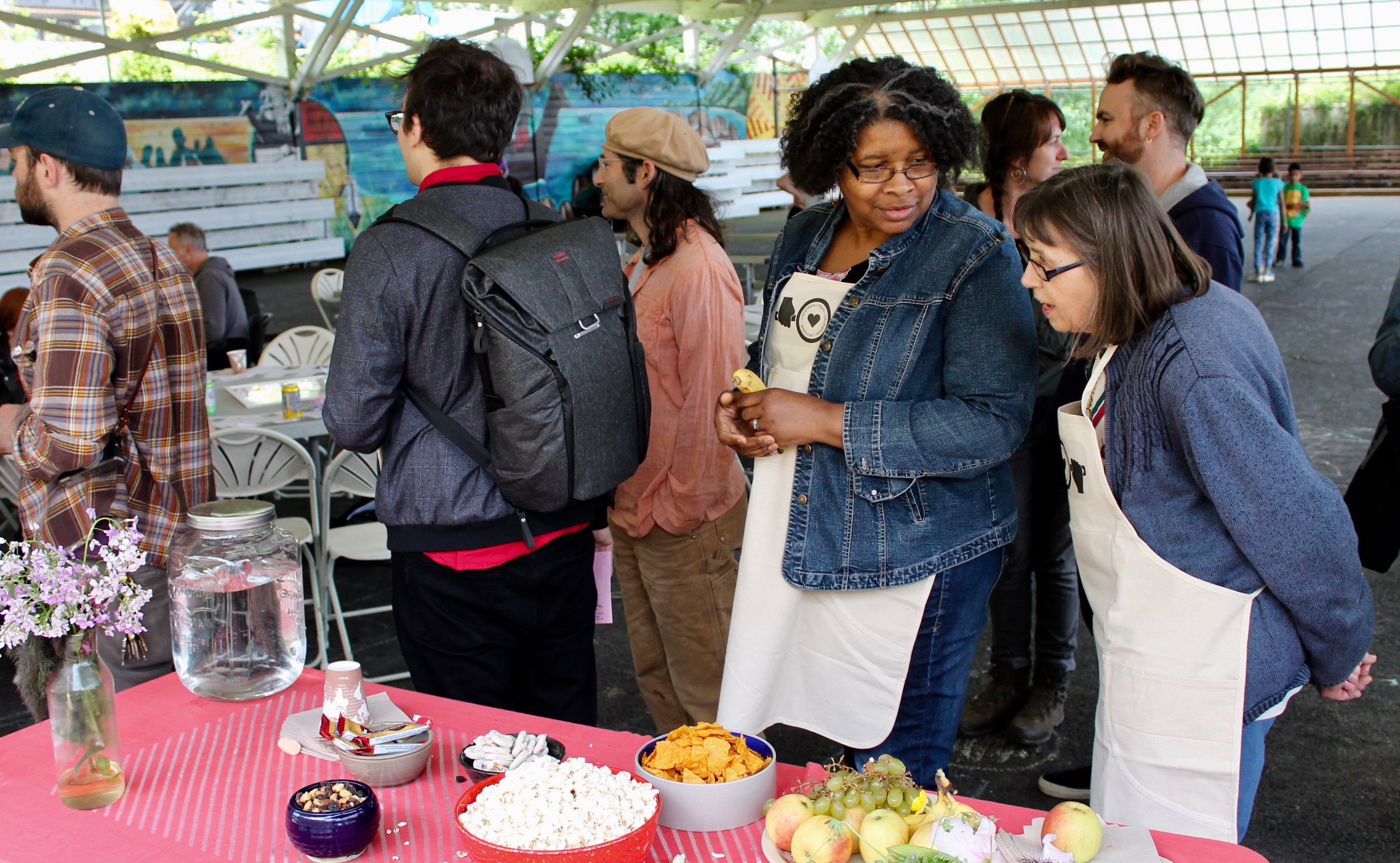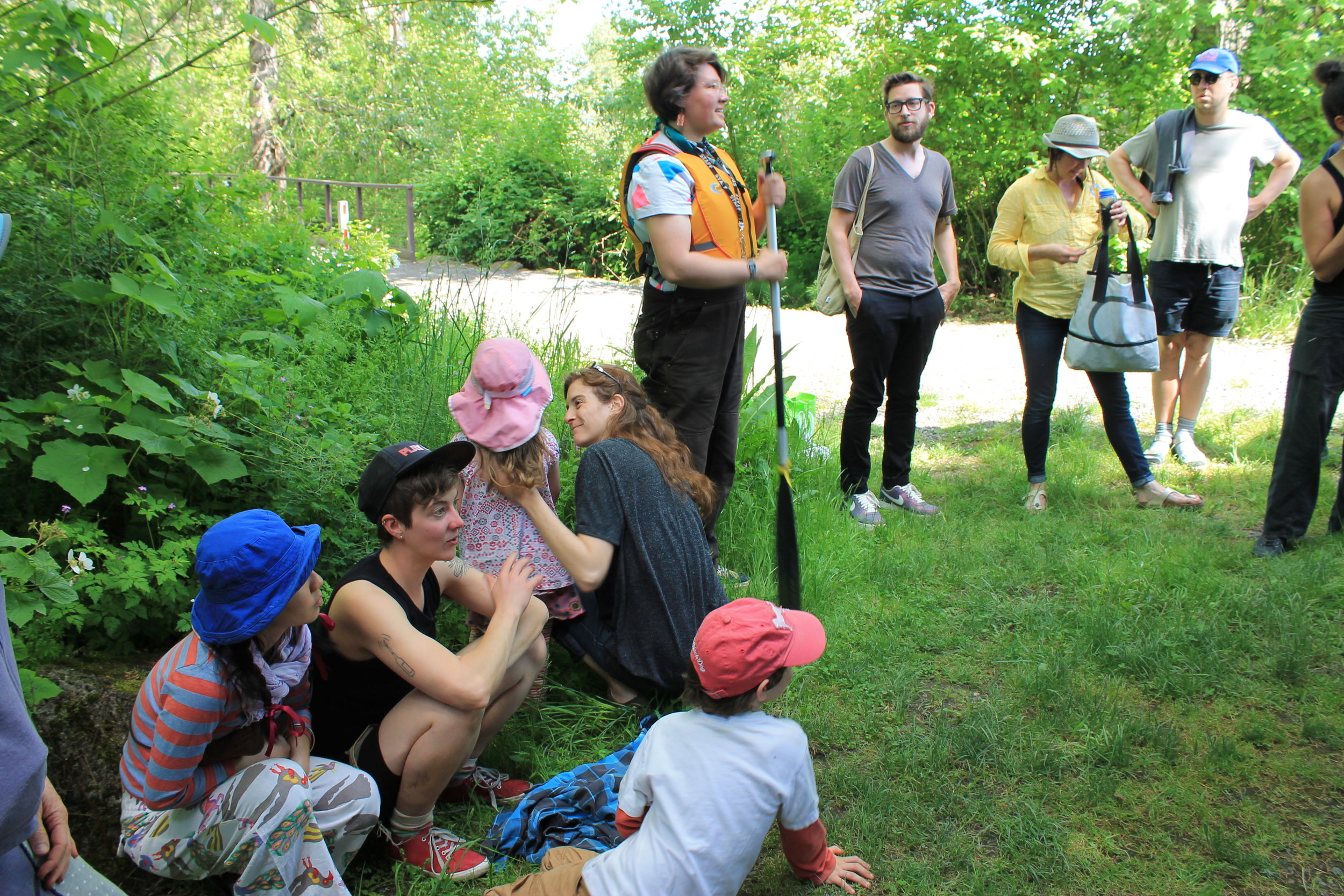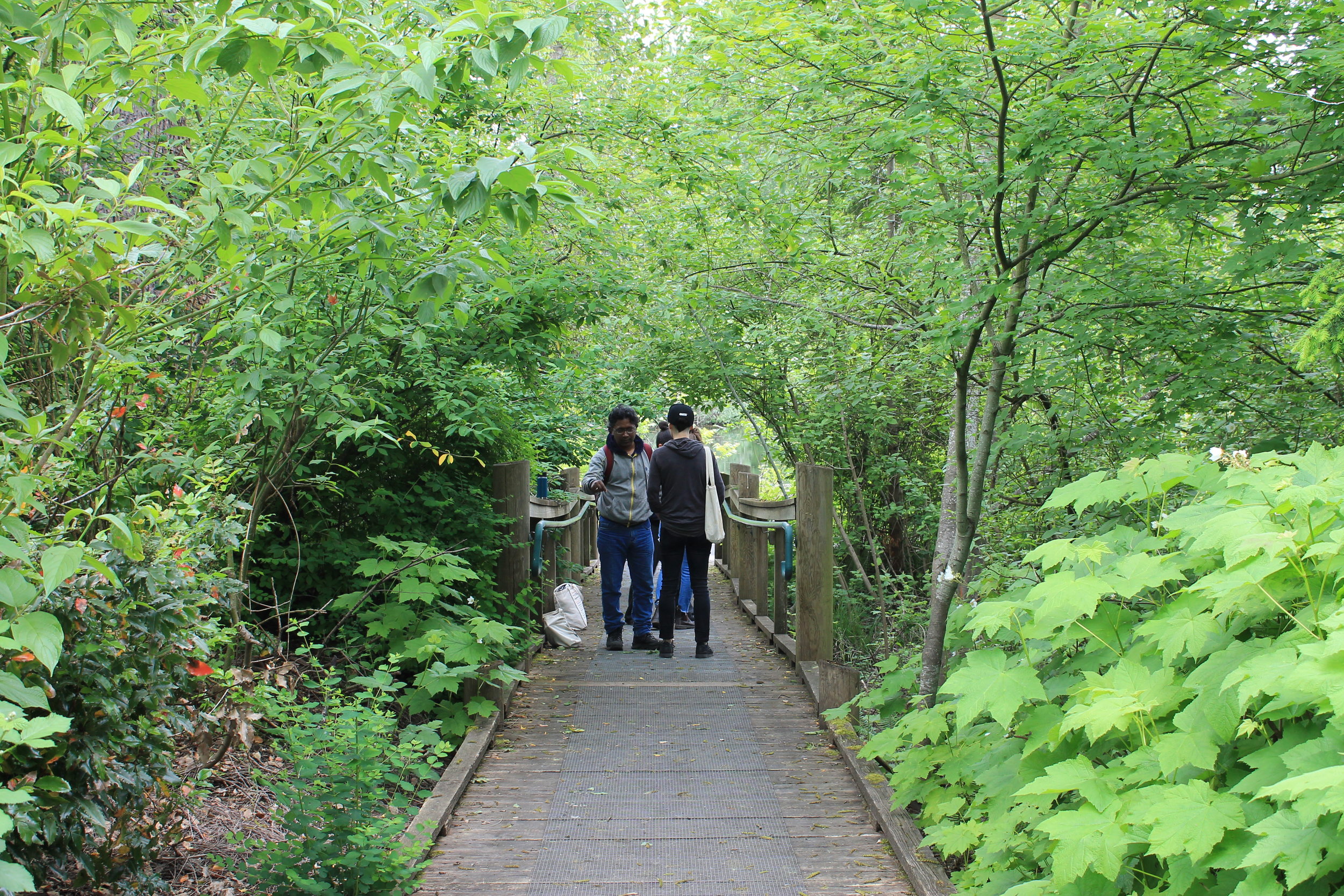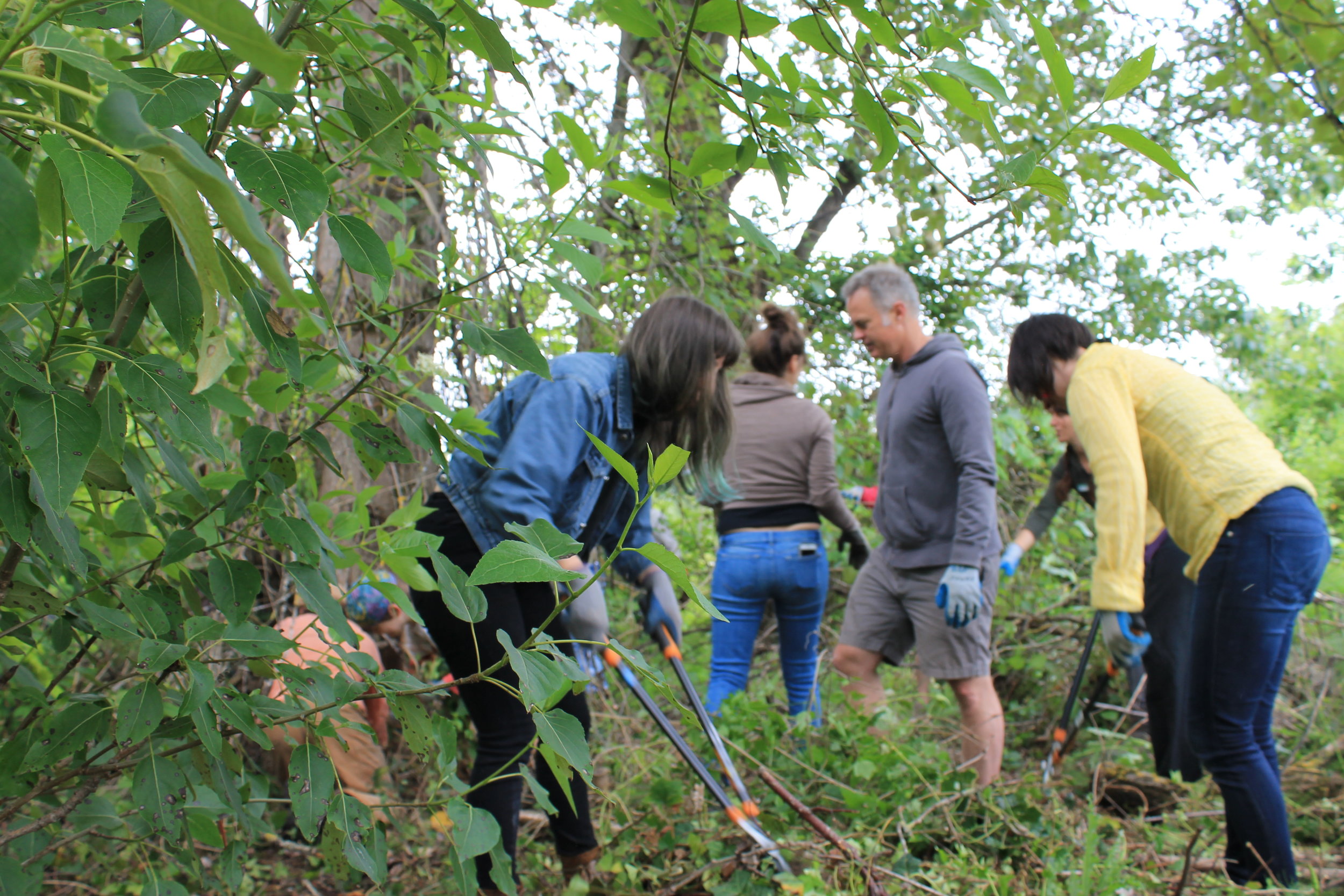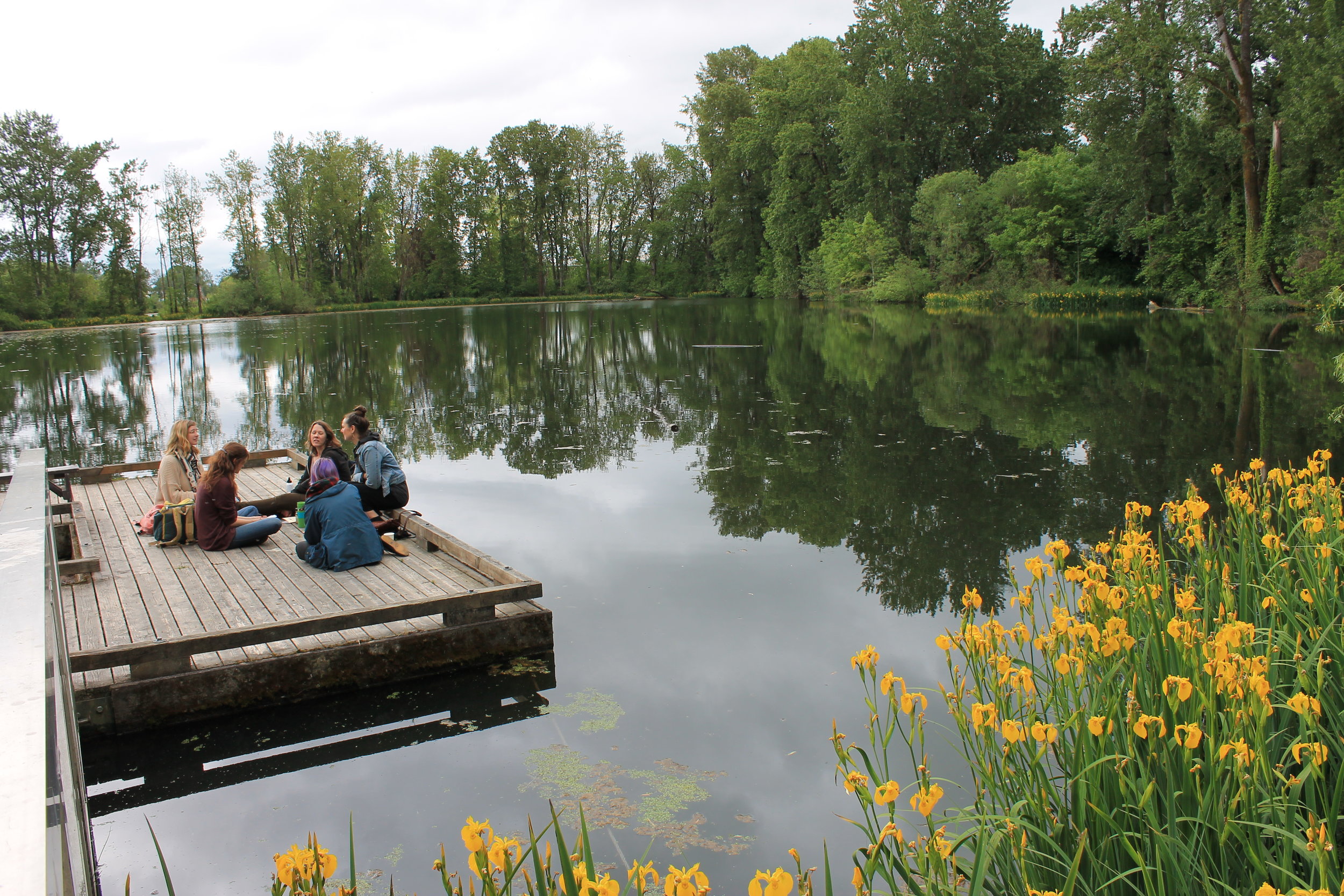May 20, 2017 — Columbia Slough Creek College, Portland, Oregon
THREE SEASONS, THREE SYMPOSIUMS
In 2017, Creek College, in collaboration with NAYA (Native American Youth and Family Center) and the Columbia Slough Watershed Council, is hosting a series of three symposiums on the Columbia Slough in Portland, Oregon.
Our first symposium is Saturday, May 20th, and features opportunities for new classes, a canoe journey, and a series of panel discussions. All events are free and open to the public.
Sign up below for our classes and an opportunity to participate in environmental education and restoration activities through our partnership with Columbia Slough Watershed Council.
Classes will be on-site at the NAYA Family Center, 5135 NE Columbia Boulevard.
Learn more about classes, barters, panelists and schedule for our May 20th symposium below.
Note:
Columbia Slough Creek College is open to participants of all ages!
Classes and Projects
whispering soil
Taught by anupam singh
9:30–10:30
—
Documentation often allows an artwork to reach wider audiences beyond its physical time and space. Some artistic processes produce experiential and intangible outcomes where documentation becomes the only way to access it. But if we alter the process of documentation into an intangible one, how would it impact the afterlife of an artwork that is ephemeral in nature? Can artworks live through narratives using memories for alternative documentation? Based on this idea, the workshop will explore the aspects of ephemerality and permanence in artistic engagement. Participants will create sculptures with found objects collected from the Columbia Slough site, and inspired by the site. After completion, the sculptures will be left at the site. Instead of conventional documentation methods, participants have the option to share personal memories/narratives of the process in a story circle the next day at MLK Jr. School.
SIGN UP!
Writing together and alone in public
Taught by roz crews
11:45–12:45
—
Walking through landscapes, touching grass, seeing a dog, eating apples near a slough; these are some things that we can (and likely will) do in this class. We will work together to write critically about experiential engagement with public space, and we will practice generating meaning from shared moments. We will also talk about ways to participate in the subconscious by listening, looking, and writing. Photo credit: Ashely Sophia Clark
SIGN UP!
creek stories
taught by lauren moran and eliot feenstra
2:00–3:00
—
What are the stories we tell that connect us and others to a place? What are the tales or histories that we have developed to grow symbiotic relationships between people and the natural world? What are the current and societal stories being debated?
The stories we're able to tell ourselves and others shape what we can understand and imagine, what we believe has happened, and what we believe is possible, both individually and collectively. In the course of sharing stories, difficulties and truths of community and place can rise to the surface. Building on the traditions of story circles and storytelling in both community arts practice and indigenous culture, this workshop invites participants to share and hear stories about The Creek in your own life and to think about storytelling skills that invite connection to a place.
We will collect and examine stories and ways they are told, passed on and documented to bring into consideration during this workshop.
SIGN UP!
cafeteria workers exchange program (ie. lunch)
project by salty thunder and spencer byrne-seres
1:00–2:00
—
The Cafeteria Worker Exchange Program is a project envisioned as a creative solution to providing lunches for Assembly. The goal is to bring together cafeteria staff from both NAYA Family Center and King Elementary School in an effort to develop conversation and reflection on nutrition, how to provide meals, high volume cooking and our relationship to the food sources that surround us. Who are the staff working tirelessly at NAYA and King? What is their relationship to food? How would they collaboratively design a menu? Where do the recipes they use come from, and what might they cook if they could cook anything at work?
The project will culminate as lunches prepared for each day of Assembly, built off of the menus and ideas generated during the exchange. The project will be documented through custom paper placemats that we produce with notes, photographs and images from the project.
SIGN UP!
canoe the slough
Project by Anke Schuttler, Shoshana Gugenheim, and
Jennifer Starkey
After talking, writing, playing, learning and thinking let your brain relax and come enjoy a quiet journey on the water. In this class we'll be paying attention to the water and listening to what the environment wants to teach us as we paddle in silence through the slough.
Family Project Space and Reading Room (childcare)
project by Emma Colburn
9:00am–5:00pm
—
This is an ongoing learning space for the duration of Creek College that offers free childcare for parents attending the conference and also explores our shifting sites through documentation. Drawing from similarities between radical education philosophies of Reggio Emilia and the Social Practice cannon, we will use processes of recording our surroundings to deepen our inquiries of, and connections to, the landscapes surrounding us for the day. You are welcome to drop in (and drop off) anytime! All ages are invited to participate. Materials will be provided. Sign up on our registration page.
Schedule
9am: Opening Ceremony with NAYA
9:30–10:30: Whispering Soil
10:45–11:30: Restoration Activity
11:45–12:45: Writing Together and Alone In Public
Lunch 1–2: Cafeteria Worker Exchange Program
2:00–3:00: Creek Stories
3:15–4:00: Restoration Activity
4:15–5:15: Canoe Journey
5:15–6:15: Panel Discussion
Restoration activities
For this session we will be removing invasive species with Portland Parks & Recreation Coordinator Yoko Silk.
Invasive plants can take over ecological landscapes, limiting the diversity of native shrubs, trees, and forbs. By removing English ivy, we are creating space for native plant regeneration, which helps provide more food and shelter for wildlife, and improves water quality. We will be pulling ivy off the ground by hand, and clipping tree ivy to prevent it from re-seeding. This work is fun! All tools and gloves will be provided.
Registration
Sign up here for the full day, individual classes, or panel.
For questions, comments, or concerns, contact us here!
Panel: Placemaking, Community and Environment
A discussion among our expert panelists will focus on two topics; Reciprocity between humans and nature, and community involvement in conservation practices. The discussion will highlight approaches and philosophies in each of our panelists respective fields. We will examine development and growth of these practices over time.
Jennifer Starkey
Jennifer Starkey joined the Columbia Slough as Education Director in April of 2016. A sincere enthusiast about the natural and cultural history of our region, Jennifer has been an educator in Portland since 2007 and is passionate about making change to help all students access the outdoors. Jennifer gained her proclivity for outdoor learning and teaching from MESD Outdoor School, where she participated as a 6th grade student, high school student leader, and staff member. She has also taught with Caldera Arts, David Douglas High School, and most recently with the Portland Water Bureau’s Education Program. Jennifer is a licensed teacher in the State of Oregon, holds a Masters of Arts in Teaching from Lewis & Clark, and a BA from Wellesley College. In her spare time, Jennifer bakes, picks up garbage in the street, and eats lunch with her grandma at the Village Inn.
Amy Harwood
Amy has been involved in forest conservation and public lands advocacy since 1998. She has worked at Bark, a watchdog group for Mt. Hood National Forest in various roles for over fifteen years. She has led hundreds of hikes and backpacking trips, educating people on the threats that face our ancient forests. In addition, she has developed and led trainings for activists to learn how to engage in public land decision-making and continues to help Bark’s efforts to hold federal land agencies accountable to environmental laws. She splits her time between Portland, OR and Tucson, AZ. She is a certified Wilderness First Responder.
BILL WEILER
Bill is almost a “Sandy River Native” having lived in Sandy, Oregon and worked as the City of Sandy Parks and Recreation Director, Sandy Community School Director and Oxbow Park Supervisor. Bill’s background is as a fish and wildlife biologist and environmental educator.
Bill is the co-founder of the environmental education non-profit, the Columbia Gorge Ecology Institute, and he has authored several books, including “Don’t Run from Bears.”
Roben White
Lakota/Cheyenne Enrolled Oglala, Pine Ridge Native, Artist, Environmental and Human Rights Activist.

